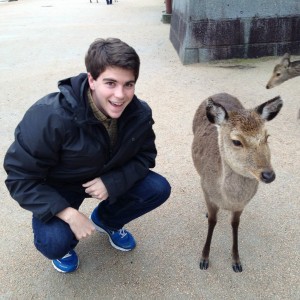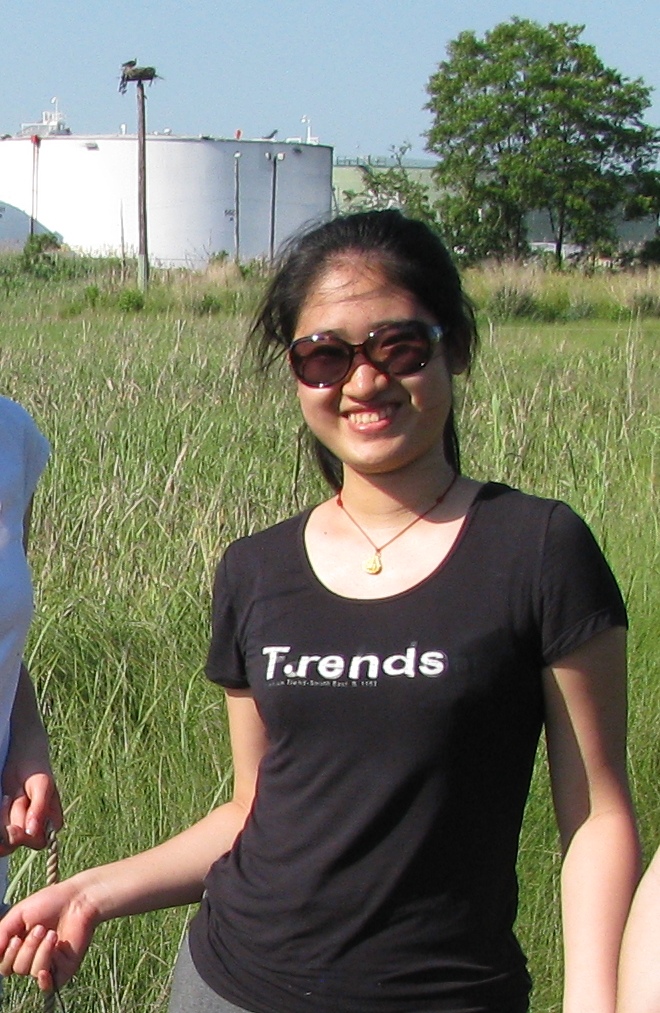By Hunter Bradshaw
My name is Hunter Bradshaw and I am a rising senior at Wofford College in Spartanburg, South Carolina. Originally from Pensacola, Florida, I now live in Jacksonville, where I have been for the past six years. I have been fortunate enough to live by the beach my entire life, and while Wofford has become my home over the past three years, it still just does not feel the same with out some salt water and sand nearby. However, recently I experienced my first snow day off from school during Snowpocalypse this past winter so I am starting to appreciate life outside of the sunshine state.

Growing up, one class period of science a day was just not enough for me. I looked for stimulation elsewhere and found it in the Science Olympiad program at my middle school. Science Olympiad is similar to the Olympics in structure, but the events are a variety of scientific topics rather than athletic competitions. So while I might have appeared to be a chubby, puberty-stricken bookworm, I was in actuality equivalent to a Michael Phelps or a Usain Bolt… or so I told myself. Science Olympiad allowed me to dabble in a multitude of scientific fields, including astronomy, engineering catapults, and meteorology. But no matter how far I strayed, I was always drawn back to biology and I decided that was what I wanted to pursue as I was entering college.
To pre-med, or not to pre-med, that is the biology majors’ question. As ambitious as I was naive, I joined the freshmen ranks of pre-med students and picked up another major in environmental studies. It soon became clear to me that I enjoyed environmentally oriented biology classes much more than my pre-med classes. Currently, I am trying to find my niche in the environmental sciences and my search has led me to where I am now, the Superfund Research Center at Duke University.
This summer I am working on Project 4: Metal-based Nanoparticles for Groundwater and Surface Water Remediation: Limitations, Concerns, Synergies and Antagonistic Effects in Bioremediation. Lauren Czaplicki, the Ph.D. student who I am assisting, is researching fungi and the organisms’ ability to breakdown pollutants. The application of this research would employ the use of fungi to break down oil-like contaminants in the soil by doing nothing more than “planting” the fungi in polluted locations. I will be aiding Lauren in culturing fungi of interest, as well as helping her determine the fungi’s effectiveness of breaking down pollutants.
I hope to gain much out of my experience here at the Duke Superfund Center. For one, I would like to become self-sufficient in the laboratory. I have been in the laboratory setting since high school, yet my familiarity does not translate into independence. I have mostly been conducting prepared experiments and following strict protocols. I want to use this opportunity to define a hypothesis relating to my project, and then design and execute an appropriate experiment. I will need to learn about different issues concerning my project to make this possible. This includes examining studies and experiments that have been done, as well as those that have yet to be done so I know where there are gaps in knowledge. Once I have a firm understanding of the problem, I will be better able to help find a solution. While it is too soon to tell if this is indeed my niche, I look forward to the Superfund program helping me become a better researcher and scientist to prepare me for whatever lies ahead.




